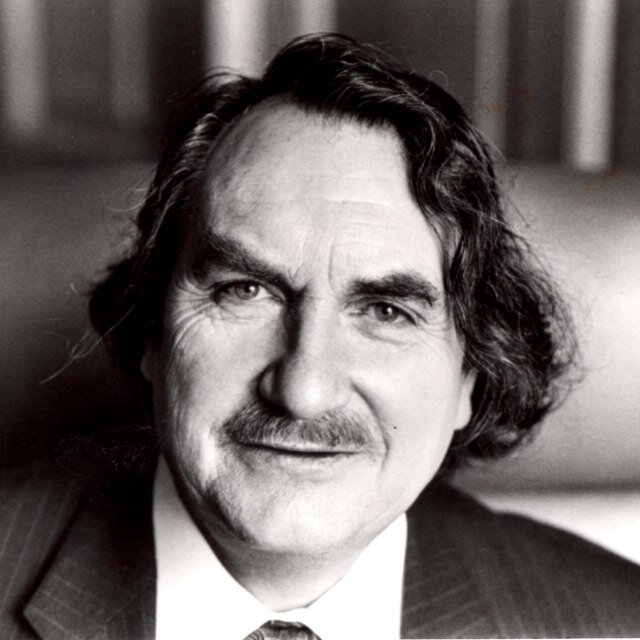Steve Morris: The lost wisdom of John Harvey-Jones

Steve Morris continues his series on lost management gurus
There is something infinitely sad that the great classic books of the late John Harvey-Jones are now available for one penny on Amazon. Indeed, every book Harvey-Jones ever wrote is out of print. Harvey Jones has been written out of history and a voice that was once so vital has been quietened. I’m not sure they quite make them like JHJ anymore and that’s why rediscovering his books is something of a thrill. I call it the lost wisdom of the old management gurus.
I have to declare an interest in JHJ. I was rather sniffy about business by the time I left University. I had decided not to go into the family business and wanted to pursue something ‘creative’. I think I may have become something of a snob. It was watching JHJ’s extraordinary BBC primetime television programme, Troubleshooter, that changed my mind. In the programme Jones parks himself in various organisations with a brief to sort things out. But that’s just part of the charm. His real goal is to change our minds about business and especially manufacturing.
Of course, on the one hand the books and TV shows were about fixing businesses that were in trouble. But JHJ’s real purpose was to introduce to the nation the drama, love and creativity of business. He wants us to know with all certainty that there would be no health service, no social infrastructure, without the heroes of business generating wealth. That was true then and it is true now. He was also alive to both the threats and opportunities to the UK economy posed by globalization. Compete or die, was a watchword.
Sign up to receive our blogs and book reviews via email
Troubleshooter was written and produced at a particular moment in time, 1990, and it was a trailblazer. In many ways it was one of the early reality TV shows but it’s much different from today’s variety. The reason is that nothing was set up beforehand, nothing was contrived. Jones simply went into a business, did his thing, they filmed it and edited it for screen. If it went wrong, then so be it. It felt risky and it was.
Reading the book version of Troubleshooter now, Jones’s bluntness is breathtaking. These days he might be cautious about naming names. But it’s always done with a kindly heart and so even the hard things he has to say to the businesses he visits seem to get home. I’ve heard Jones described as a one trick pony. It’s certainly true that whatever business he went into he tended to view it through the same lens. His focus was very much on getting the management right and understanding what the customer wanted. Behind that was a real desire that British industry should compete on a worldwide stage and not rest on a rather faded past glory. It could certainly be said that Jones didn’t really read the future very well (more Charles Handy’s area). I’m sure he had no idea that our economy would move so comprehensively to the service sector and away from making things and I think he would have been very sad about this.
Jones explains that business is more than just about numbers. It is about people and their dreams. He spends much time in each business listening to people and wondering why they’re doing why they’re doing it. He spends a lot of time speaking and taking on the views of shopfloor workers and has a hunch that they often understand the business better than their bosses. He knows that many problems experienced by business are the ones that we can’t see rather like a doctor realizing that the presenting problem is not the real illness.
In Troubleshooter Jones visited mainly small businesses that had reached a crossroads. He aims to take a clear-eyed view of what comes next and how the past has influenced how the business got into its current state. Jones, at heart, loves manufacturing and admires those involved in it. He is a romantic. He hates the growth of asset-stripping and venture capitalism and profiteering. Entrepreneurs are like folklore heroes, he tells us, and the country needs to appreciate them for all their creativity and sacrifice. Growing up in a family business and running one myself I believe him to be correct.
In that first series of Troubleshooter Jones visited some national names. His dissection of Tri-ang is brilliant. He realizes that the dreams the owners have will never happen and at the end he walks away feeling sad that this business may well be (in fact was) doomed. They are not prepared to do the hard work, the clear thinking, the restructuring and the investment to really make things go well. That’s what makes the book and series so interesting – Jones doesn’t always win and he doesn’t always get things right.
Perhaps the most affecting of all of the case studies is his time with Churchill tableware. He quickly realizes what the issue is. The firm is run by three brothers all of whom want different things, all of whom are more hobbyist than businessman. What’s more they seem incapable of delegating and although things are going well now, Jones realizes there may be trouble ahead. Towards the end of the case study he is feeling rather downcast and that nothing will happen. That isn’t quite the case though.
This surely is the whole thing about Jones. He may not always be right but he certainly worth listening to. Reading Troubleshooter feels like going back in time to a very different world. I’m not particularly surprised that it is of print, but I am sad about it because in this lost classic there is much to be learned about the joy of business and how taking time to understand why we’re doing things and what we’re doing is always time well spent
Jones’s books sold tens of thousands of copies and he was a household name. He was someone we listened to. It is hard to believe that anything like that could happen these days. When Jones was writing, business books publishing was booming but these days it is something of a backwater. We get our wisdom elsewhere.
We’ve lost something with the death of John Harvey-Jones in 2008 and we’ve lost something when we no longer have his salty and pertinent comments about our great country and how we might see the future differently. Jones clashed with Margaret Thatcher (and she knew what she was talking about) and there were many sceptics about his work. But I’d love to see JHJ go to work again today.
A friend of mine was speaking at a large and important business conference. He was looking forward to it until he saw who was on the podium before him – John Harvey-Jones. I asked my mate how it went.
‘Steve, he blew me away,’ he told me. I’m not surprised.
Thank God for John Harvey-Jones.
 Steve Morris is the Vicar of St Cuthbert’s, North Wembley, an entrepreneur, and the author of several publications for CEME and beyond including Enterprise and Entrepreneurship, and Lessons from Family Business, both available from the CEME office. He is married, with two children and has three cats. His latest writing, Our Precious Lives, dealing with the power of story-telling is available here.
Steve Morris is the Vicar of St Cuthbert’s, North Wembley, an entrepreneur, and the author of several publications for CEME and beyond including Enterprise and Entrepreneurship, and Lessons from Family Business, both available from the CEME office. He is married, with two children and has three cats. His latest writing, Our Precious Lives, dealing with the power of story-telling is available here.
